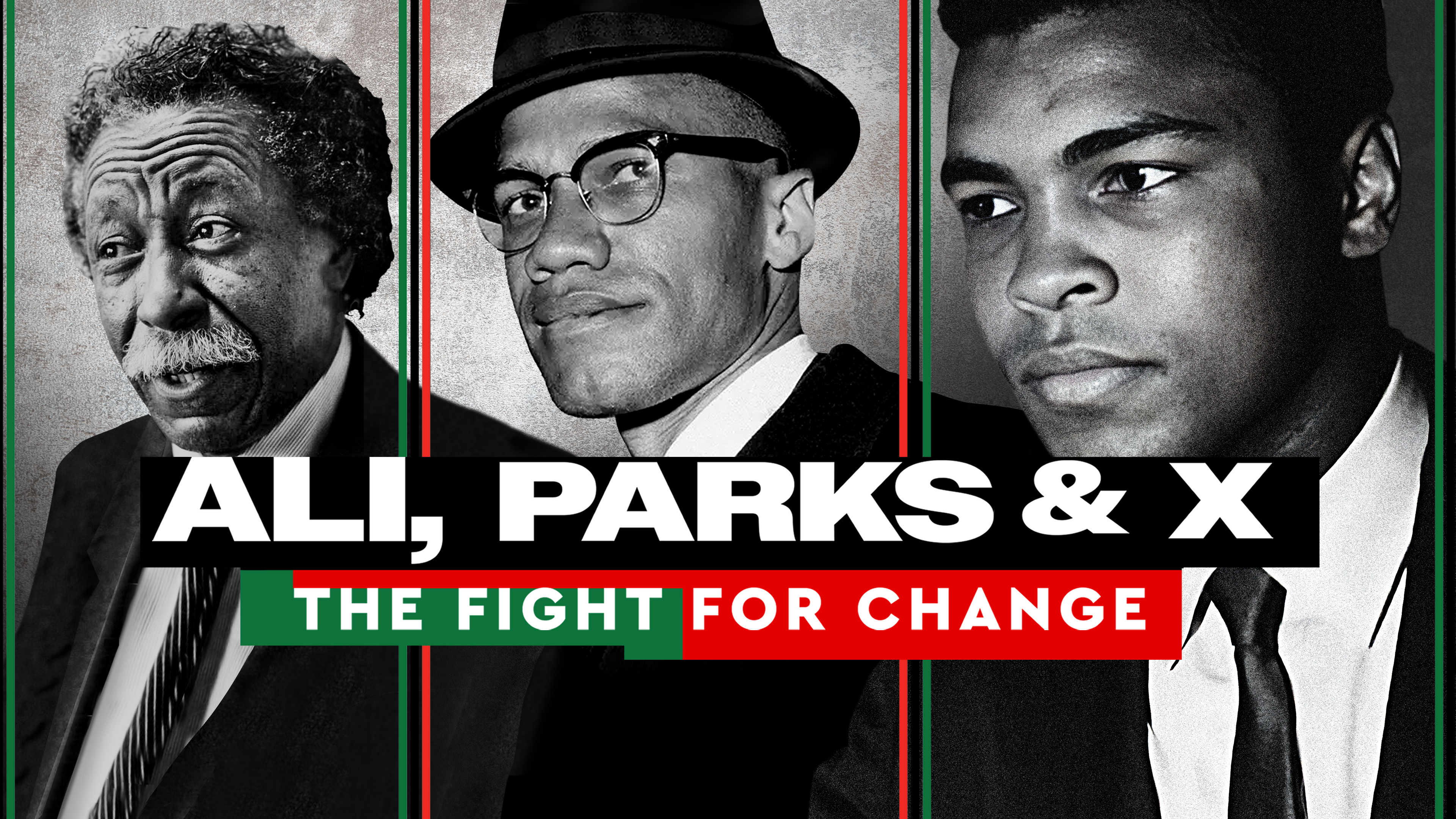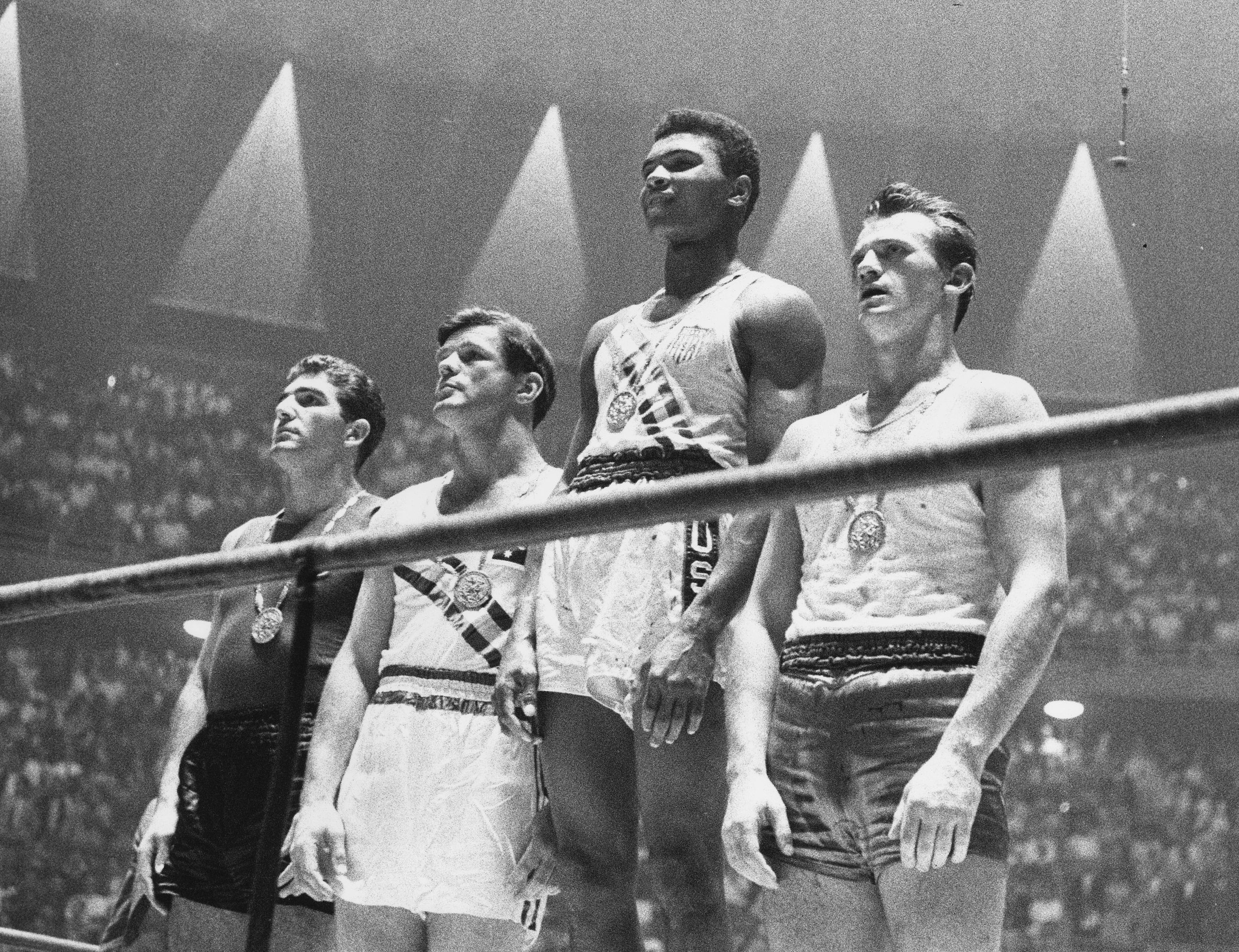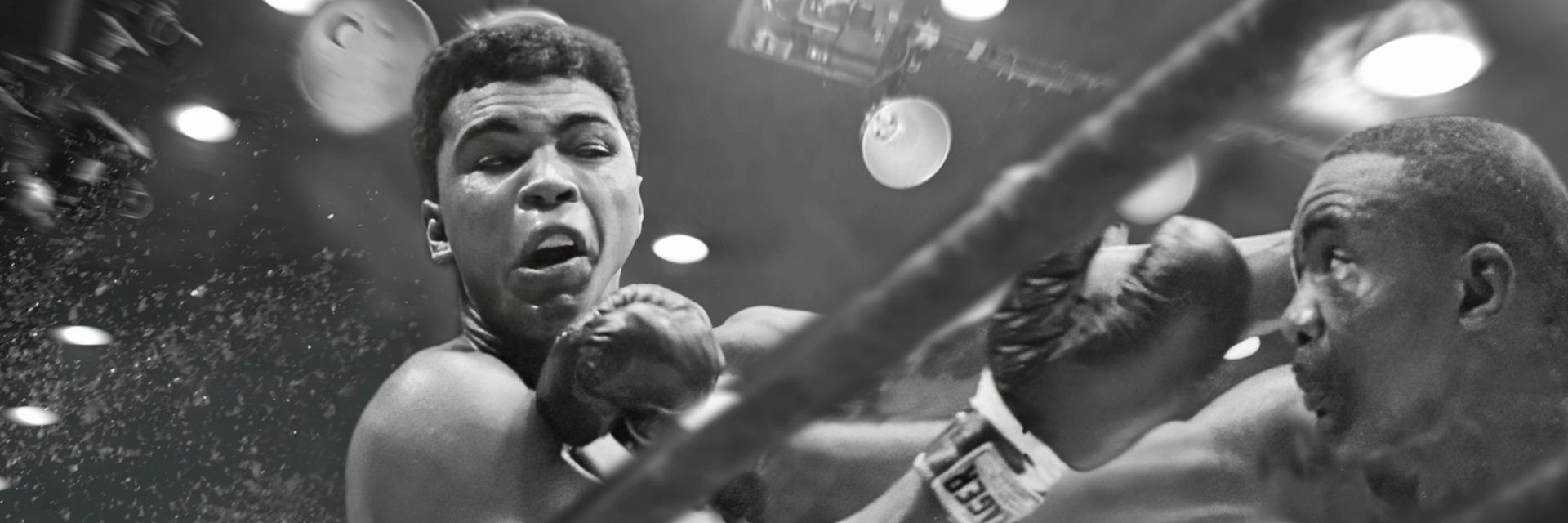The civil rights movement of the 1960s produced many heroes. A new release on MagellanTV tells the story of three who fought for dignity and respect – and paid the price.
◊
I found this documentary on the struggle of African Americans for equality and civil rights, from the 1955 arrest of Rosa Parks to the 1984 Parkinson’s diagnosis of boxing superstar Muhammad Ali, an engaging piece of recent American history for people interested in the civil rights movement. It is a concise yet deep overview of that nearly 30-year period, containing much that is still relevant – and profoundly moving – to today’s audiences.
Inside this engrossing tour of the era are the entwined stories of three great cultural leaders of the time: superstar heavyweight champion Muhammad Ali; religious leader and agent for change Malcolm X; and, in the visual arts, trailblazing photographer and filmmaker Gordon Parks. This film does a masterful job of following their stories as they connect with each other and with crucial historical events.
 Explore beneath the surface of the public lives of three outstanding Black cultural icons in Ali, Parks, & X.
Explore beneath the surface of the public lives of three outstanding Black cultural icons in Ali, Parks, & X.
The Entwined Lives of Three Black Leaders
Using extraordinary film and newsreel clips from the era that display the brutality suffered by African Americans attempting to lead lives of dignity, Ali, Parks, and X demonstrates the ongoing relevance of events seven decades ago. And while the stories of Malcolm X and Gordon Parks are truly inspiring, and portray the tribulations and the price they paid to create their legacies, I was particularly drawn to the account of Muhammad Ali. Perhaps it has to do with the fact that I spent my formative years in Ali’s hometown of Louisville, Kentucky, and I remember how he was at once embraced and rejected by that community.
The film starts its coverage of Ali at the 1960 Rome Olympic Games, when the athlete then known as Cassius Clay won the gold medal in boxing. He was justly celebrated in Italy and the rest of Europe for his ferocity and elegance in the ring. But when Clay returned to Louisville, he found that nothing had changed for him. He was still denied entry to facilities reserved for Whites, and he faced discrimination at every turn. Soon after he arrived home, he tossed his Olympic gold medal into the Ohio River as a protest and vowed to improve his status as a Black man in White America, whatever the cost.
Several years later, in 1966, Clay had abandoned what he called his “slave name,” and, as Muhammad Ali, he refused induction into the military draft. As a result, he was stripped of his championship titles and disallowed from boxing professionally. He fought this dishonor for more than three years until, finally, the U.S. Supreme Court found that his objection to the draft was valid on the basis of his religious beliefs. Though he lost his prime years in the sport, he maintained his dignity.
 Then-named Cassius Clay wears his Olympic gold medal proudly at the Rome games in 1960. (Source: Public domain, via Wikimedia Commons)
Then-named Cassius Clay wears his Olympic gold medal proudly at the Rome games in 1960. (Source: Public domain, via Wikimedia Commons)
The film’s portrayals of Malcolm X’s life and death and the professional struggles and triumphs of photographer Gordon Parks, who befriended and documented both Ali and X, are also remarkably compelling.
How the Past Informs the Present
Ali, Parks, & X: The Fight for Change brings the personal and professional stories of these three leading figures to the fore, showing how their paths converged and intertwined among the vast cultural changes of the 1960s social movements. The bravura storytelling, which takes on everything from bus strikes to the Beatles, left me virtually breathless. Its scope, and its detailed narratives of the three men at its center, are genuinely impressive. I hope you will find it as inspirational as I did.
Ω
Kevin Martin is Senior Writer and Associate Editor for MagellanTV. A journalist and communications specialist for many years, he writes on various topics, including Art and Culture, Current History, and Space and Astronomy. He is the co-editor of My Body Is Paper: Stories and Poems by Gil Cuadros (City Lights) and resides in Glendale, California.
Title Image: Muhammad Ali takes a jab in his fight with Joe Frazier in March 1971 – dubbed “The Fight of the Century.” (Source: Promotional still from the documentary Ali, Parks, & X.)

